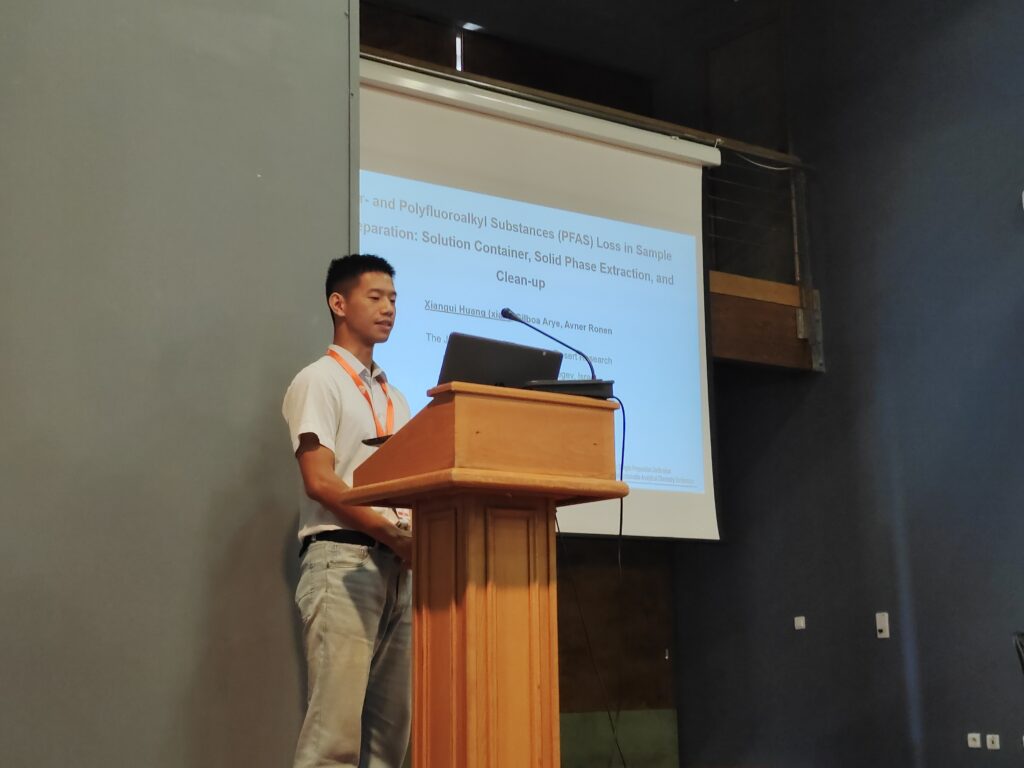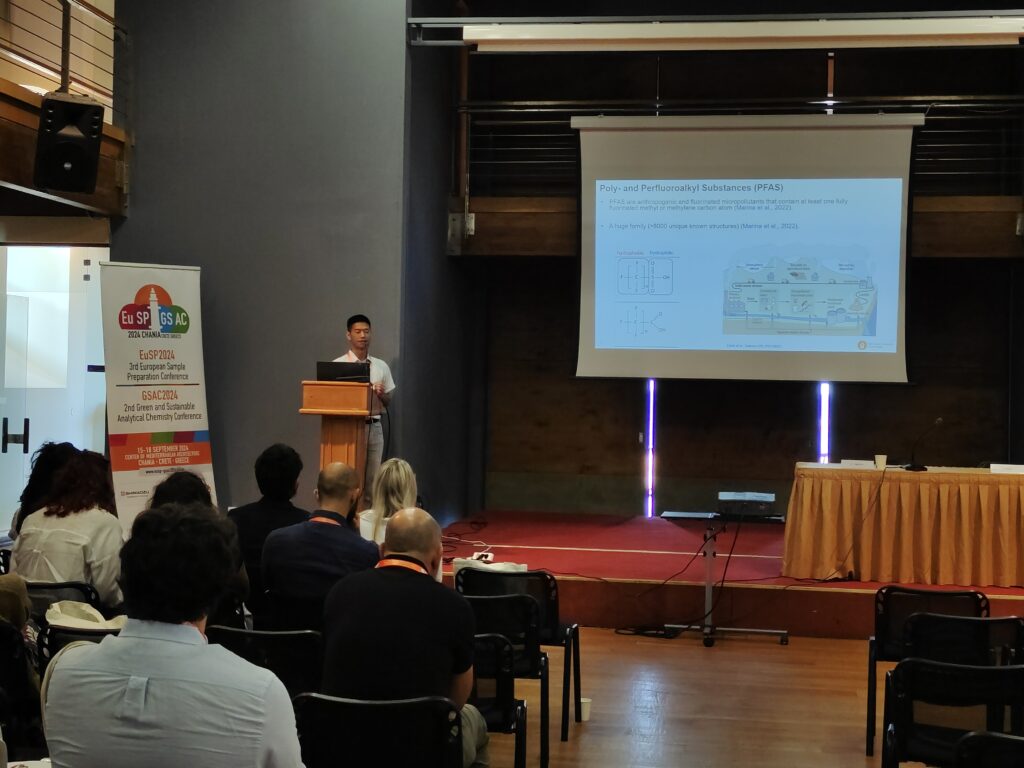SCENARIOS was represented at the 3rd European Sample Preparation Conference (EuSP2024) and the 2nd Green and Sustainable Analytical Chemistry Conference (GSAC2024) a joint conferences event that took place from the 15th to the18th September in Crete, Greece and gathered around 230 participants. The goal of the 3rd European Sample Preparation Conference (EuSP2024) and 2nd Green and Sustainable Analytical Chemistry Conference (GSAC2024) is to showcase innovative research, cutting-edge technologies, and new methodologies in the fields of sample preparation and sustainable analytical chemistry. The event emphasizes the theme of “Innovation,” promoting advancements that improve efficiency and sustainability in analytical practices. It provides a platform for interdisciplinary collaboration, supports emerging researchers through awards and recognition, and includes educational workshops on green methodologies and publishing strategies.
Xiangui Huang from Ben Gurion University of the Negev gave an oral presentation at the conference titled “Per- and Polyfluoroalkyl Substances (PFAS) Loss in Sample Preparation: Addressing Challenges with Solution Containers, Solid Phase Extraction, and Clean-up Techniques”. Xiangui research focuses on PFAS partitioning in wastewater, particularly how it is influenced by organic matter. A key aspect of my work is PFAS analysis, which involves the challenging tasks of sample preparation and instrumental analysis. These topics were extensively covered in many oral presentations and posters at the conference. Specifically, the discussions on solid-liquid extraction, solid-phase extraction, and methods for cleaning up interfering compounds were highly relevant and provide valuable insights that are directly applicable to my research.


The conferences was a great opportunity to gain deeper appreciation for the significance of analytical chemistry, as it became evident that numerous researchers and engineers are contributing to advancements in areas such as sampling, sample preparation, and chemical and instrumental analysis. Technologies like 3D printing and microcontrollers are increasingly popular in sampling and sample preparation, enhancing both efficiency and environmental sustainability. Additionally, research on micropollutants, such as PFAS, is now primarily focused on improving sample preparation techniques and developing novel sensors for more accurate detection and analysis.
